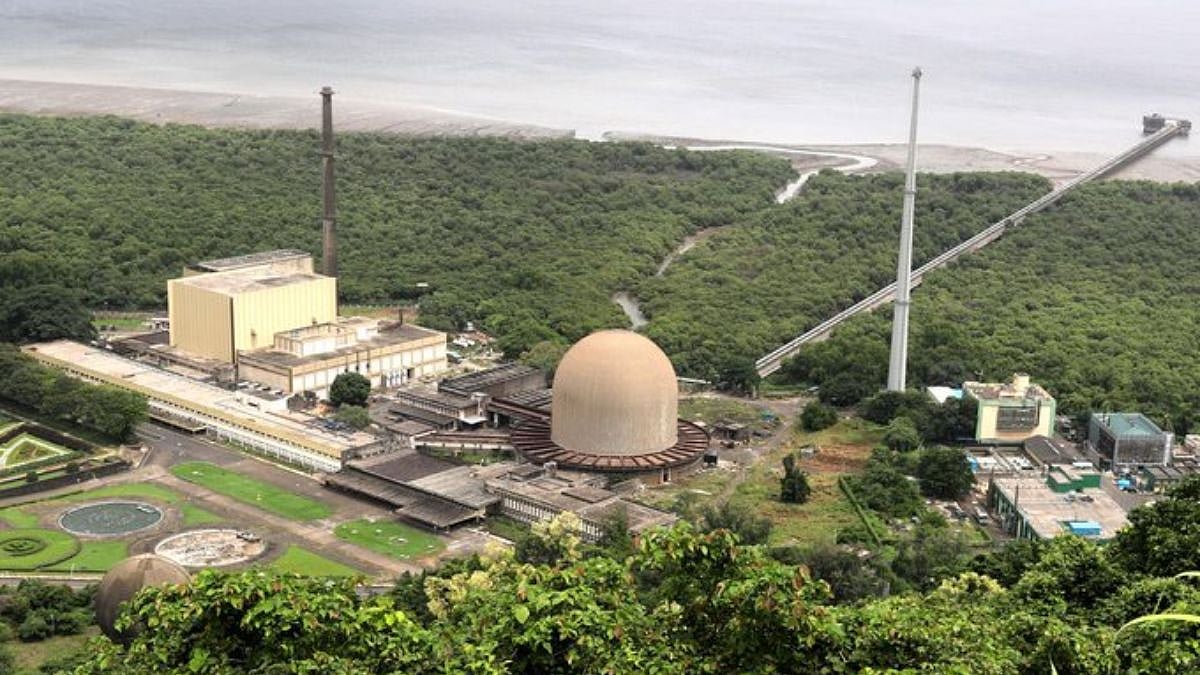MEERA S. SASHITAL talks of the fortnight after the end of Anant Chaturdashi.
The dark fortnight which commences immediately after the end of Ganesh festival i.e. the Anant Chaturdashi (Bhadrapada Purnima) is called the Mahalaya or Pitri Paksha and lasts for fifteen days from Bhadrapada first day of Krishna Paksha (dark night) to Bhadrapada (new moon). Generally when this period is over, Navaratri (Dussehra) begins.
To the Hindus the dark fortnight of Mahalaya or Pitripaksha, the lunar period, (September-October), is considered sacred and dedicated to the memories of the departed ancestors by offering food and clothings to the spirits of the dead through rituals termed as “Shraddha” or ‘tarpan’. The sun at this period is in the Rasi Kanya (Virgo), and the belief is that at the moment of the entrance, the spirits leave the abode of Yama and descend to earth to visit their descendants and relatives.
Usually, the anniversary or Shraddha ceremony is performed on the day of the death of a person, but the Mahalaya fortnight especially the last day of this period, the new moon day known as Sarvapitri Amavasya is considered as the most important day in the year for performing obsequies and rites The performance of Sarvapitri Amavasya rites can also compensate a forgotten or neglected annual Shraddha ceremony which should ideally coincide with the death anniversary of the deceased.
To perform a Shraddha at Gaya and Badrinath is considered very meritorious but, if this is not possible, performing a Shraddha during Mahalaya is said to be equally fruitful. According to the Scriptures, there are 96 Shraddhas prescribed during the whole year. This period is also known as Pitru Pakshya (Sanskrit), Pitri Pokkho, SolaShraddha, Mahalaya Paksha, Apara Paksha and Aswayuja.
Annadana (Donation of food) is the central part of the rituals during these 15 days. During these days offerings of food are made to the departed including those whose names or manner of death are not known. On these days ‘tarpan’, shradda and ‘pinda daan’ are performed daily according to the procedures under the guidance of a priest. If it is not performed daily, to perform these rites on the last day i.e. on the New Moon day on Mahalaya Amavasya (or Sarva Pitri Amavasya) is extremely important and sacred.
The Sarvapitri Amavasya is the greatest of the fifteen days on which it is imperative to perform the Shraddha by at least inviting one Brahmin guest. It is believed that the spirits receive food and nourishment through the medium of the partaker who is sumptuously fed. Offerings of food are also placed on a banana leaf which is kept outside for the crows who are believed to be the spirits of the departed souls. Until the crows eat a morsel of this food or even touch, the inmates are not satisfied.
According to Hindu ideology a son plays an important role in the family. The Shraddha by a son during Pitri Paksha is regarded as compulsory to ensure that the soul of the ancestor goes to heaven. In this context, the scripture Garuda Purana says “There is no salvation for a man without a son”. Though much has changed with the advance of 21st century women getting equal rights, yet the notion of importance to a son still persists. The Markandaya Purana says that if the ancestors are content with the Shraddhas, they will bestow health, wealth, knowledge and longevity and ultimately heaven and salvation (moksha) upon the performer.
During this fortnight of Mahalaya there are some exceptions to the lunar day rite and special days are allotted for people who died in a particular manner or had a certain status.in life. For instance Chauta Bharani or Bharani Panchami being the fourth or fifth day. This rite for one who has died within the past year.
Then there is Avidhava Navami (unwidowed ninth),the Shraddha performed in memory of a woman who has died before her husband. But, the most important of all these days is the Sarvapitri Amavasya (All Fathers’ New Moon), the last day of the fortnight on which day it is compulsory to perform the Shraddha in the memory of ALL ancestors who are no more. These ceremonies are observed by all Hindus irrespective of caste or creed.
According to Sharma, the Shraddha ceremony is central to the concept of lineage. Shraddha involves oblations to three preceding generations by reciting their names as well as to the mythical lineage ancestor (gotra). Thus a person gets to know the names of six generations (three preceding generations, his own and two succeeding generations in his life, reaffirming lineage ties. Another well-known University proclaims that the Paksha emphasizes the fact that the ancestors and the current generations and their next unborn generation are connected by blood ties. The current generation repays their debt to the ancestors in the Pitri Paksha. This debt is considered of utmost importance along with a person’s debt to his parents and his Guru.
Among the Romans, the 19th of February was the day sacred to the Manes of the dead. They used to dig a large pit on one of the hills of their city, where offerings called inferias were made to the departed souls who were said to live under the earth under the guardianship of Mania. The Romans called the festival ‘Feralia’ or Parentalia. It was held as an unlucky day for marriage or business. Even among the Hindus, no munj (thread ceremony) or marriage ceremonies or even simple auspicious functions are held during Mahalaya and intercalary months which are considered to be unlucky.
Man is not immortal and Hindus believe in life after death. According to the scriptures, the recently dead are spoken as ‘preta’ (ghosts; literally, “One who was gone before”). Due offerings by their heirs raise them to the status of Pitri (fathers) by providing them with a body, until they gain an earthly one again in their next re-birth. Therefore, to commemorate their day and worship the departed souls (Pitras) became an important ritual and part of man’s religion. So observing this rite is treated as repayment of debts of one’s ancestors by the Hindus.
Again, as per Hindu thought and according to Rig-Veda, Lord Yama was the first to die. Lord Yama or Pitripati (Lord of the Fathers) is assumed as the guide of those who depart from this life to Yamalok, his kingdom in the southern quarters. The kingdom of Yama is visualized as a happy place where the departed ones live happily. Hence, when mortals enter this happy land they become objects of veneration to their descendants alive, and with joy partake of the oblations offered to them by the living.
The importance of offering food to the departed ones during Mahalaya is retold from a legend from Mahabharata. It is said Karna the great hero of Mahabharata when he left his mortal coil and reached Yamalok due to the charity he had done on earth it was returned hundredfold. But, it was all in gold and silver and not food, because Karna had not done any charity in the form of food! Karna prayed to the God of Death but he was sent back to earth for fourteen days to make up for his deficiency.
For fourteen days, Karna fed Brahmins and the poor, and offered oblations of water. On his return to Yamalok he was treated with sumptuous food. It is these fourteen days that are commemorated in the Mahalaya or Pitri Paksha. It has been ordained that offerings made during this period benefit all the departed souls. Charity in the form of food is important during this observance or even otherwise.
We are all aware how much food is wasted during marriage ceremonies or even during big functions and events. If food was offered to the departed souls not only during Mahalaya fortnight but constantly served as charity to the poor starving people and children (instead of wasting by the affordable class), we will be blessed by not only the departed ones but by the living ones too.
Mahalaya means the advent of Navaratri, Dussehra or Durga Puja With the passing of the fortnight of Mahalaya or Pitri Paksha the New Moon marks the end of sober days and the beginning of days of festivity and rejoicing.









